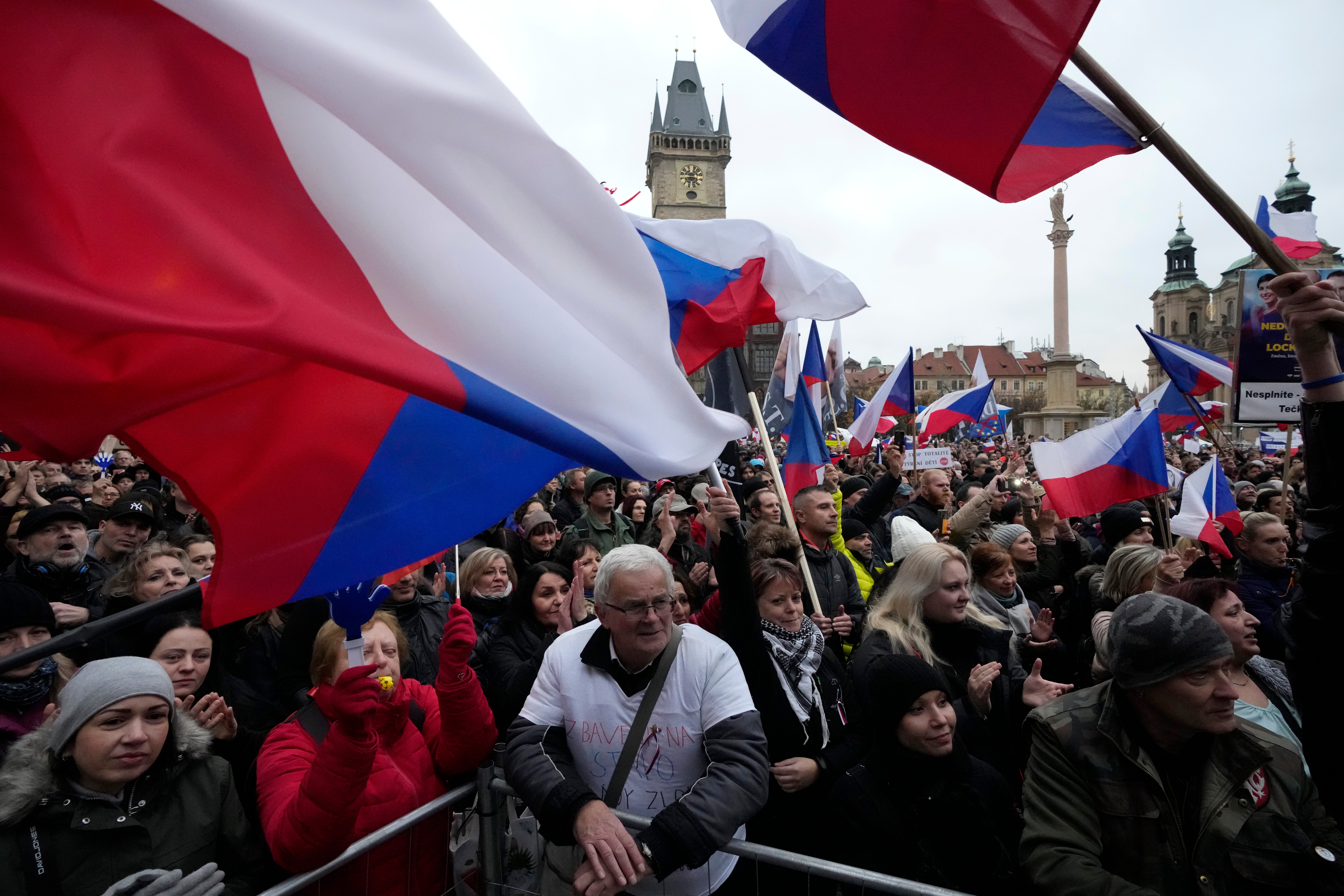Covid in Europe: What are countries doing to contain the latest wave?
Unvaccinated people face more restrictions as European nations act to stem rising infections

European countries are taking action to tackle the latest wave of Covid as winter approaches.
Infections have been rising across parts of the continent, with some countries experiencing a record number of daily cases in recent weeks.
The World Health Organisation said that Europe was the only region in the world where Covid-related deaths increased last week, after the continent saw a rise of 5 per cent.
Restrictions have been stepped up for unvaccinated people in some parts of Europe – Austria, for instance, has implemented a targeted lockdown – while people have been urged to work from home in a bid to control infections in time for winter.
Here is a round-up of what European countries are doing as they try to curb the spread of the virus.
Austria
Millions of unvaccinated people were sent into lockdown on Monday as the country grapples with one of the highest infection rates in Europe.
Anyone older than 12 years old who has not been jabbed against Covid, or recently had the virus, is now banned from leaving their home unless it is for a list of activities, such as to go to work, go shopping or go for a walk.
Officials have vowed to step up police patrols, and can fine unvaccinated people caught breaking the rules up to €1,450 (£1,217).
Covid cases in Austria, where around 65 per cent of the population has been vaccinated, reached a new daily record on Wednesday, passing 14,000 for the first time during the pandemic.

The Netherlands
A partial lockdown came into force in the Netherlands last weekend – the first to be introduced in Europe since the latest wave of infections took hold.
Supermarkets, non-essential shops, cafes and nightclubs must shut earlier under the latest rules, and the public have been told to work from home wherever possible.
The country reported more than 110,000 cases – a seven-day record – in the week ending 16 November.
Politicians are also debating whether to restrict entry to public venues to those who have been vaccinated or have recently recovered from Covid.
Germany
Germany announced on Thursday that access to public, cultural and sports events, as well as restarants, will be restricted to those who have been vaccinated against or recovered from Covid in places where hospitalisation rates exceed a certain threshold.
It comes after a leading public health official warned that the country faced a “really terrible Christmas” if measures were not stepped up.
Parts of Germany – including the capital Berlin – are already demanding proof of vaccination or recent recovery from Covid-19 for all indoor leisure activities.

Belgium
Belgians were told to work from home for four days a week, and younger children were told to wear face masks in crowded spaces, as measures were stepped up on Wednesday in response to rising infections.
Masks or a negative Covid test are also needed in nightclubs, restaurants and bars, on top of proof of vaccination.
France
Even though the country’s daily case tally has topped 20,000 for the first time in months this week, the French government has insisted that tougher measures are not on the cards at the moment.
But the government’s top scientific adviser said this week that rules on working from home could be imminent.
As other European countries ramp up restrictions on unvaccinated parts of the population, Emmanuel Macron said France does not need to send this group into lockdown because of the success of its health pass in curbing the virus’ spread.
Sweden
There are plans to introduce Covid vacccine passes for large indoor events – those attended by over 100 people – amid fears that infections could rise as they have in neighbouring countries.
“The spread is increasing in Europe. We haven’t seen it yet in Sweden, but we are not isolated,” the health minister said on Wednesday. “We need to be able to use vaccination certificates.”
Czech Republic
The health minister has urged companies not to go ahead with traditional Christmas parties, and has called for employees to work from home where possible.
The government approved plans this week to allow only those who are vaccinated or have recovered from Covid-19 in the past six months to enter restaurants, attend certain events and use various other services from Monday.

Slovakia
In new measures starting from Monday, members of the public who have not been vaccinated will be banned from non-essential shops, public events and gatherings.
They will also need to take a Covid test twice a week to go to work.
In the worst-hit parts of the country, restaurants, hotels and fitness centres will shut for everybody.
Spain
Regional governments are asking for legal permission to introduce Covid passports, which would restrict entry to nightclubs, bars and restaurants to those who have been vaccinated.
Spain’s rate of infections has been rising steadily since the end of last month.
Additional reporting by agencies
Join our commenting forum
Join thought-provoking conversations, follow other Independent readers and see their replies
Comments
Bookmark popover
Removed from bookmarks